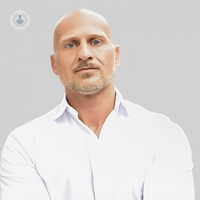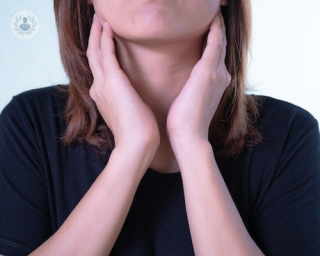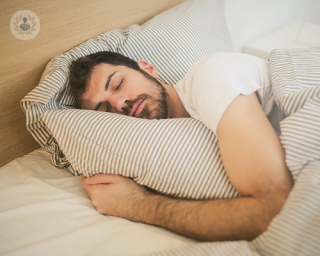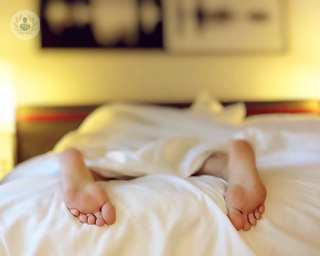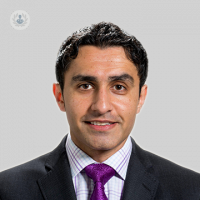Snoring
Dr Fabio Fanfoni - Otolaryngology / ENT
Created on: 11-13-2012
Updated on: 09-05-2023
Edited by: Jay Staniland
What is snoring?
Snoring and obstructive sleep apnoea are disorders characterised by temporary upper airway occlusion at the pharynx level during sleep. This causes problems with sleep, fatigue and breathing, and other related problems.
What symptoms can be caused by snoring?
As well as snoring, in more severe cases breathing may stop (sleep apnoea) for more than 10 seconds, resulting in episodes of sleep disturbances throughout the night. These episodes cause oxygen deficiency in the brain, which can increase the risk of cardiovascular problems, diabetes, or stroke. The affected person may also suffer from drowsiness, general tiredness or depression, and may suffer from impaired concentration, affecting professional and personal performance.
What causes snoring?
The most common causes of snoring and sleep apnoea are obesity, nasal obstruction (polyps, deviated septum), an elongated soft palate, and hypothyroidism, among others. The common denominator in all situations is that there is a permanent or functional narrowing, which can have its origin at various levels of the upper airway. This produces an intense vibration on the walls of the pharynx, which transforms into the sound we perceive as snoring.
Can snoring be prevented?
It is difficult to prevent snoring but steps can be taken to improve it. For example:
- Snoring is made worse by sleeping on your back, so avoid sleeping in this position.
- Dry air may irritate and inflame the nasal mucosa. Placing a humidifier in the room may be helpful.
- Some foods contain allergens that provoke reactions and may cause a narrowing of the airways. These should be identified in order to check for possible allergies.
- Avoid alcoholic beverages in the evening, as alcohol relaxes the muscles of the pharynx, causing the air to vibrate as it passes, which then results in snoring.
- Certain sleep medications worsen snoring and the severity of sleep apnoea.
- Smoking dries and inflames the mucous membranes and is therefore strongly discouraged.
- It may be helpful to raise the headboard of your bed or use more than one pillow.
- Surgery may be an alternative, especially in cases of anatomical anomalies.
How can snoring be treated?
Treatment can be based on weight loss, changing lifestyle habits, and giving up smoking and drinking. You can also use a nasal mask that provides air pressure controlled by a mechanical device (CPAP), or you can have surgery.
Surgery may be helpful for anatomical abnormalities such as a deviated nasal septum or thickening of the uvula and soft palate. Non-invasive surgical techniques performed under local anaesthetic have been used for years now and they offer rapid postoperative recovery. Another non-invasive alternative is a mandibular advancement device. This is a kind of "dental sleeve" that you wear when sleeping. It moves the lower jaw forward of the upper jaw, thus widening the retrolingual area. It helps prevent snoring and sleep apnoea, is simple to use and has an easy adaptation process.
